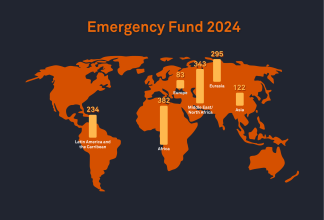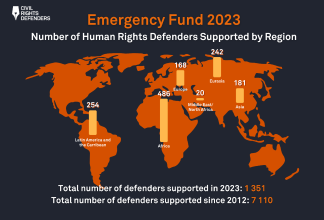Prosecution of Peaceful Bloggers and Other Civil Society Activists Must End
On 29 October, a court in Vietnam handed down a 15 month suspended prison sentence to Dinh Nhat Uy, a blogger and activist, effectively releasing him from prison into house arrest. However, the indictment clearly shows the problem with vague legal provisions such as Article 258, enabling prosecution against people who have done nothing but exercise their right to freedom of opinion and expression. This must end if Vietnam’s campaign for membership in the United Nations Human Rights Council is to have any credibility.
Dinh Nhat Uy was arrested in June 2013 under Article 258 in the Vietnamese penal code for posting statements on Facebook for the release of his imprisoned brother, as well as texts critical of the government. Article 258 provides against “abusing democratic freedoms to infringe upon the interests of the State, the legitimate rights and interests of organisations and/or citizens”.
A loose network of bloggers is campaigning against Article 258, which they believe is used as part of the repressive system in place to silence bloggers and other activists. Ahead of the trial of Dinh Nhat Uy, the network used their blogs as a forum of manifestation, and posted his indictment in both Vietnamese and English. The allegations against Dinh Nhat Uy included publishing offensive posting that affect state agencies, institutions and individuals and spreading such postings by attracting “likes”. The indictment clearly shows the problem with vague legal provisions such as Article 258, enabling prosecution against people who have done nothing but exercise their right to freedom of opinion and expression.
The blogger network also issued a statement on the prosecution of Dinh Nhat Uy, seeking to demonstrate that charges against him are illegitimate and that Article 258 is used arbitrarily. The network argues that, if there is equality before the law, many others should be charged as well. They name several well-known individuals, including politicians who have criticized the state for being corrupt, and also say that they themselves have published texts similar to Dinh Nhat Uy’s.
Meanwhile, Vietnam continues to campaign for membership in the United Nations Human Rights Council. For this campaign to have any credibility, prosecution of peaceful bloggers and other civil society activists must end. Releasing Dinh Nhat Uy unconditionally and repealing Article 258 would be a start.

